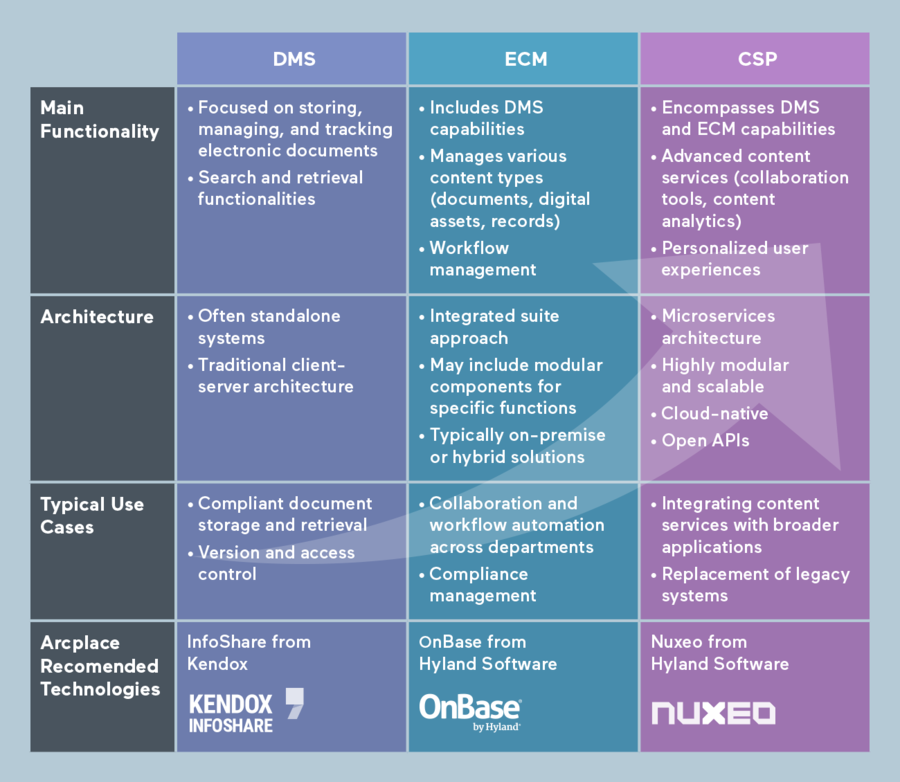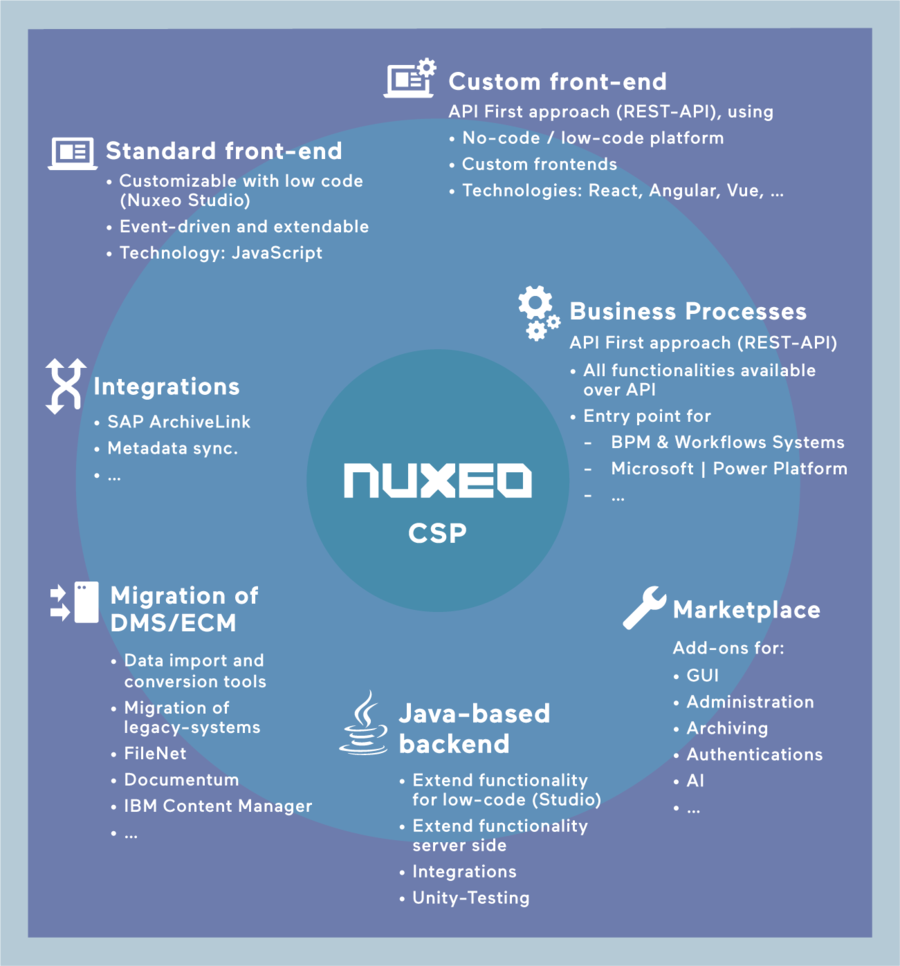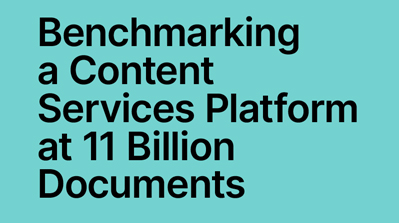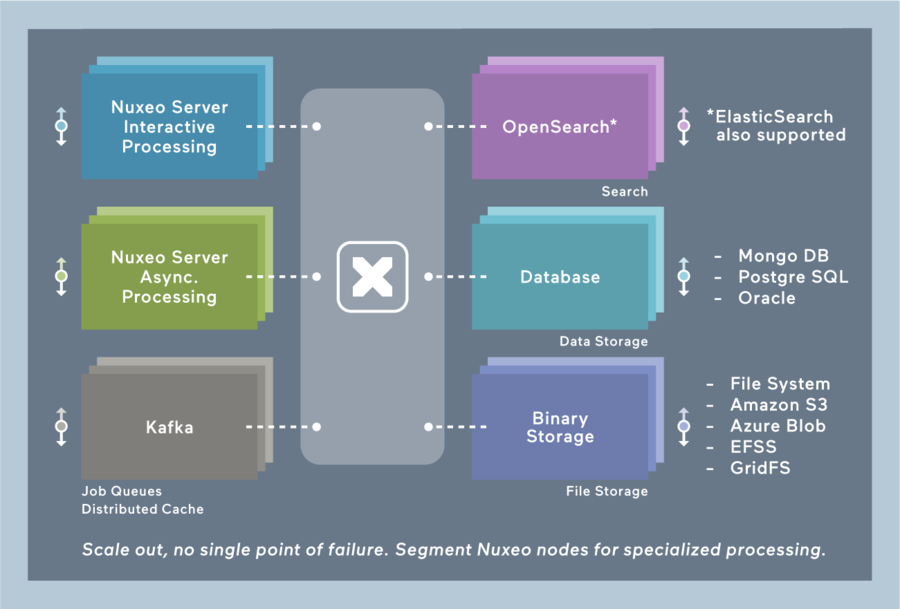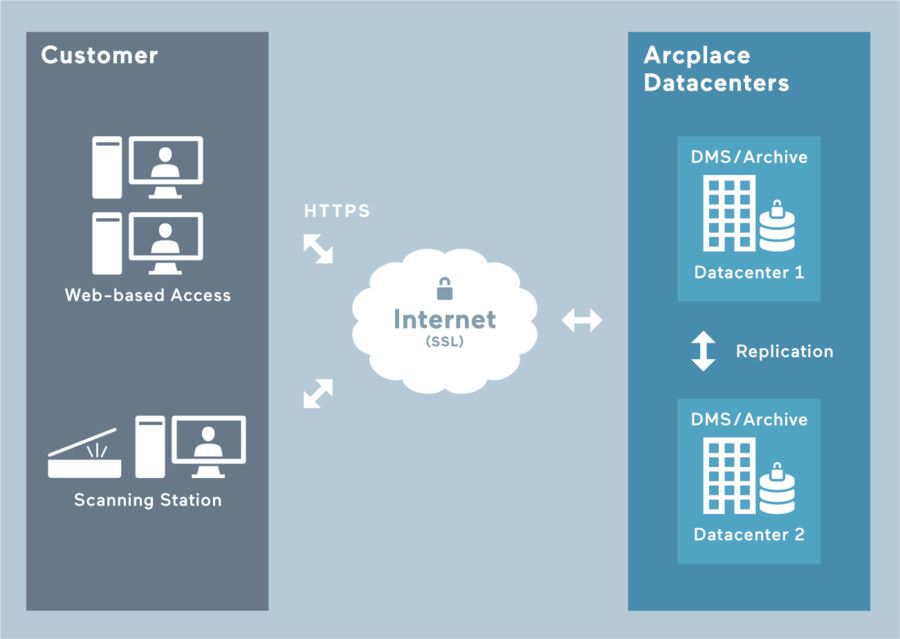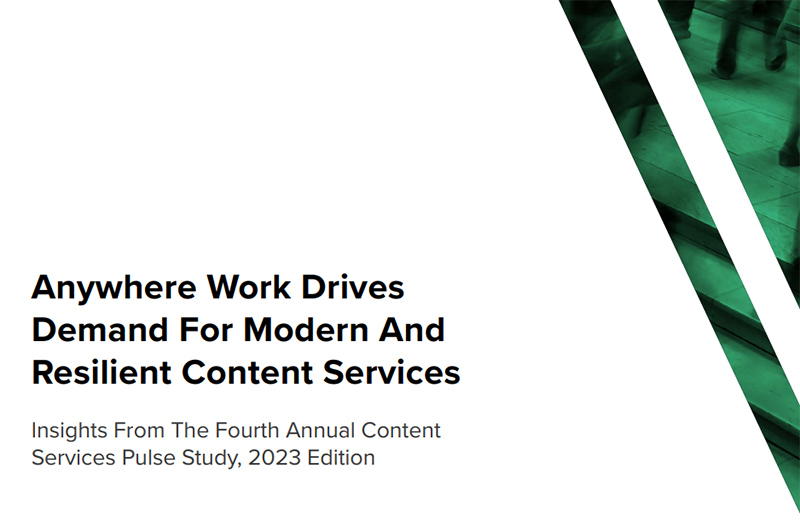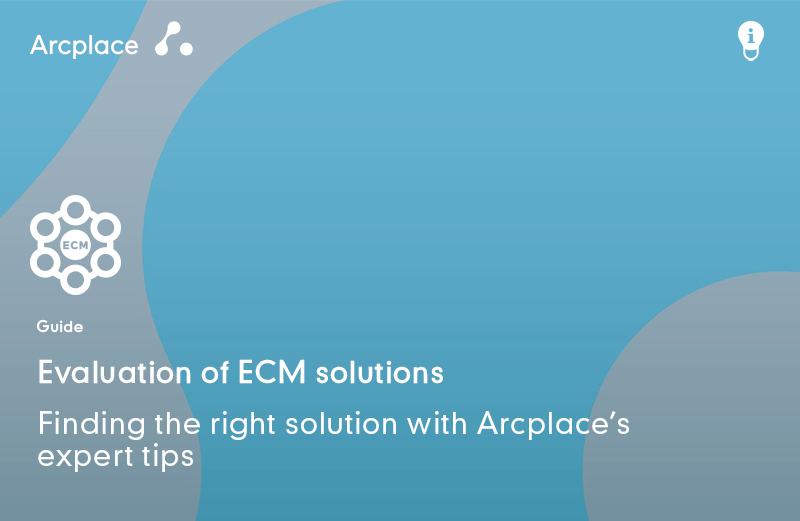Modern applications that manage and store documents and other types of content are referred to as a Content Services Platform (CSP). Besides covering the traditional functionality of DMS and ECM systems, a Content Services Platform uses microservices architectures and open interfaces. This design allows for seamless integration with other applications and leverages the advantages of cloud infrastructure services.
From DMS to CSP
This table highlights the unique attributes and differences between Document Management Systems (DMS), Enterprise Content Management (ECM), and Content Services Platforms (CSP).
Nuxeo Content Services Platform
- Store different types of content like text, documents, video, audio
- Set of services and microservices, embodied as an integrated product suite and applications that share common APIs and repositories
- Exploits diverse content types and serves numerous use cases across an organization
- Enable users to create, share, collaborate on content
Arcplace Cloud DMS/Archive Service
Arcplace has developed a cloud service that allows companies to make use of a high-end document management and archiving platform at a significantly lower cost than that for an in-house solution. Arcplace garantees 100% data storage in Switzerland.
The Cloud DMS/Archive service furthermore allows customers to archive documents in compliance with both Swiss and international archiving laws and regulations. In order to ensure disaster recovery and compliance, the Arcplace infrastructure is hosted in highly secure datacenters.
To maximize accessibility and quality, the Arcplace Operations Team monitors and manages the infrastructure from its operations center in Zurich. Both the Cloud DMS/Archive service and the datacenters are certified against the ISO 27001 information security standard.
Anywhere Work drives Demand for modern and resilient Content Services
Post-pandemic, content management decision-makers are transitioning from reactive to proactive strategies, focusing on enabling permanent remote work experiences. Modern content services platforms are essential for supporting this shift, enhancing customer and employee experiences, and mitigating emerging threats in a globally expanding, hybrid work environment.
Two Inconvenient Truths IT Needs to Know Before Selecting an ECM Solution
To get beyond simply being "suppliers of technology" and have an impact on how their organizations get value out of their information assets, IT has to face inconvenient truths when evaluating ECM systems. Learn two key areas where IT can provide important insight into their organization’s ECM purchase.




